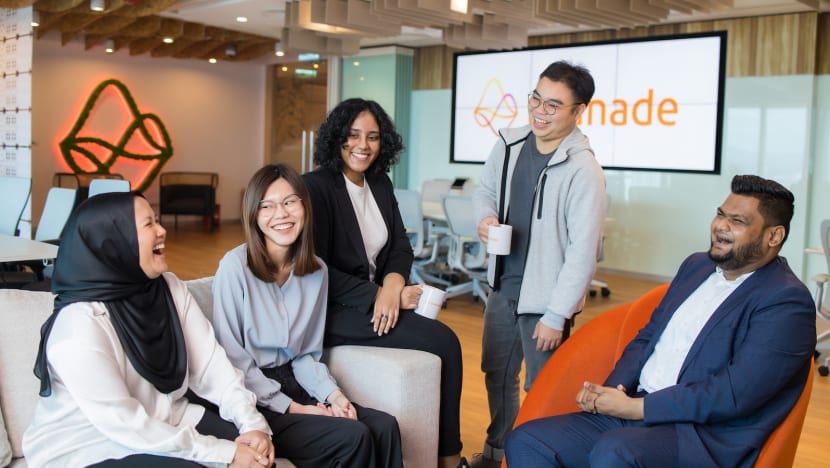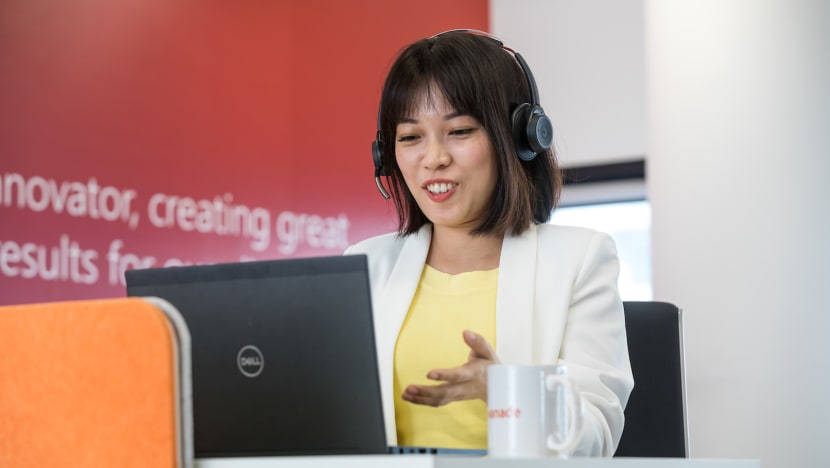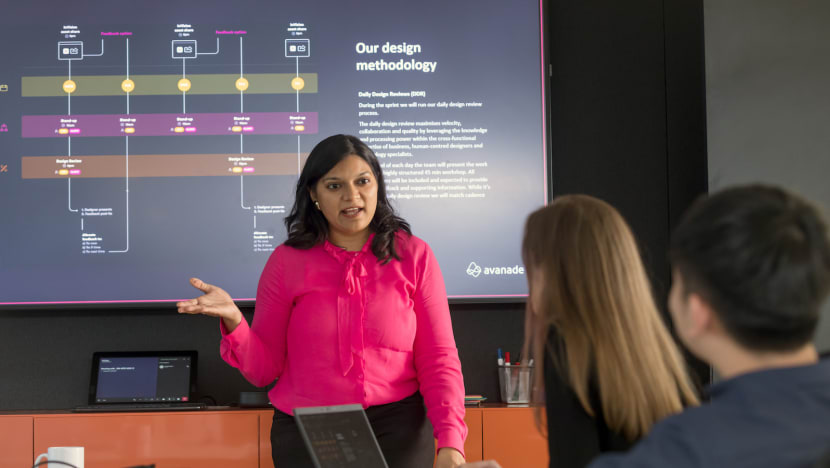Empowering enterprises: Avanade’s approach to responsible AI adoption
The global technology services company is helping businesses across Southeast Asia adopt and expand their use of artificial intelligence.

Avanade uses Microsoft technology to provide digital, cloud and AI services to organisations across a wide variety of industries. Photos: Avanade

This audio is generated by an AI tool.
Since its 2022 debut, ChatGPT has sparked widespread interest in generative artificial intelligence (AI), with the growing popularity of tools like Microsoft Copilot further fuelling the buzz.
However, even as organisations explore the transformative potential of generative AI, it’s essential to establish clear goals and robust strategies for adopting and scaling up such technologies, said Mr Bhavya Kapoor, Southeast Asia managing director of Avanade, a consultancy that uses Microsoft technology to provide digital, cloud and AI services across industries.
“We are moving from the hype of generative AI to the reality of generative AI, but our research tells us that most companies are not prepared beyond the technical aspects of AI,” said Mr Kapoor.
Citing findings from Avanade’s 2023 AI readiness report, Mr Kapoor noted that 49 per cent of the over 3,000 survey respondents lacked confidence in their organisation’s risk management processes for an enterprise-wide integration of generative AI.
To address this gap, Avanade offers Avanade AI Governance Quick Start, a framework for organisations to assess risks in AI projects. It helps in refining existing business and IT governance processes, policies and behaviours in order to manage AI risks across functions. “AI readiness is not an end point, it’s an ongoing journey,” said Mr Kapoor.

CUSTOMISED SOLUTIONS THAT BOOST EFFICIENCY
Established in 2000, Avanade works with companies to use generative AI to improve operational efficiency and enhance human experiences across industries. For example, Avanade recently facilitated the deployment of a knowledge management platform powered by generative AI for a large oil and gas company, allowing it to reduce fault resolution time significantly.
Mr Kapoor explained: “In the past, if a fault happened, someone would have to look at the part number, search for the manual, look for a fix, call someone to fix it and then get it fixed. The cycle time from finding the fault to initiating a fix could be hours, days or months. Now, the company’s employees can upload a photo of the defect, describe the issue in layman terms and get an immediate list of suggested solutions.”
Avanade achieves these efficiencies by closely collaborating with clients to evaluate their readiness and providing customised solutions. “This is not a one-time IT project; it’s about making sure the company has the right data, the right change management philosophy and the right mindset,” said Mr Kapoor.
CONSIDERATIONS IN IMPLEMENTING GENERATIVE AI
According to Mr Kapoor, Avanade receives new enquiries from potential clients across Southeast Asia weekly. While many clients have considered the technical requirements, they often overlook aspects such as governance, process readiness, human preparedness, strategic alignment, long-term sustainability and employee capabilities, he shared.
These observations align with the Avanade AI readiness report, which found that companies often prioritise technology without considering the readiness of their employees in terms of training and resources. Only 52 per cent of respondents stated that their organisation has complete workforce planning processes in place to safeguard roles as generative AI is scaled.
Even fewer – 48 per cent – said their organisation has implemented guidelines and policies around responsible use of AI. And while they are excited to seize the benefits of generative AI at work, 63 per cent of business and IT executives said employees will need some new skills or a completely new set of skills.
Furthermore, there are businesses keen on using tools like Microsoft Copilot but “have not figured out the actual business case for making it happen”. Unlike other tech projects, generative AI projects do not always show returns immediately and the results are not easily quantified, noted Mr Kapoor.

Avanade’s blueprint helps clients demonstrate the benefits of generative AI. For example, in the cybersecurity space, Avanade aids clients in optimising their security portfolios by assessing existing features for potential retirement or enhancement. The savings generated from this process can be reinvested to employ tools like Microsoft Copilot, said Mr Kapoor.
To successfully deploy AI, organisations should start with the end goal in mind. “What is the business problem? Are they addressing an opportunity gap or a performance gap? They should identify what they want to solve and then work backwards to look at how it can be solved, leveraging generative AI,” advised Mr Kapoor.
AI STRATEGIES THAT PUT PEOPLE FIRST
Amid the enthusiasm surrounding AI’s potential to improve experiences for employees and customers, Mr Kapoor stressed that companies must make it a priority to understand employee concerns and create an AI strategy that puts people first.
Companies should also ensure there is corporate fluency and alignment of strategies across departments, Mr Kapoor said. They must evaluate risk mitigation processes in light of new risk profiles, establish measurable objectives for AI performance, ensure appropriate technology and infrastructure, and define accountability structures within the organisation.
In addition, companies must be ready to address rising concerns around AI’s ethical and societal implications. As AI solutions rely on data for training, they may produce biased outcomes if the data fails to accurately represent the population, noted Mr Kapoor.

“Diversity is not just a moral imperative but also a strategic one,” he said. “A diverse workforce can drive performance and mitigate potential bias, and it can also lead to enhanced AI solutions for a larger set of users.”
Mr Kapoor said it is vital to build cultures that appreciate experiments, failures and growth. “Business and IT leaders need to recognise how the rise of AI will force a rethink of the relationship and engagement between people and technology, and that an AI-first culture is inherently people-first,” he said.
“Successful leaders will be the ones who deeply understand how to leverage AI to empower human ingenuity, elevate employees’ performance and strengthen their sense of workplace value.”
Learn how Avanade can help your organisation with AI.















